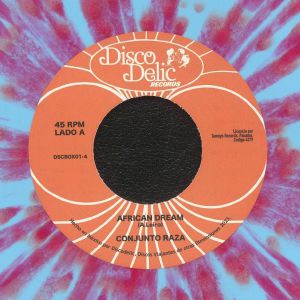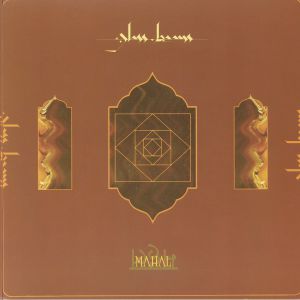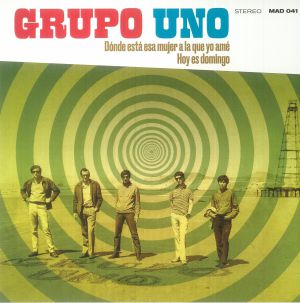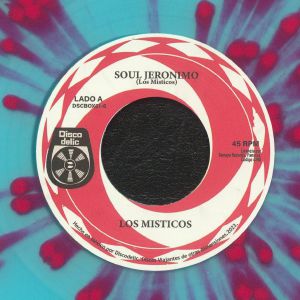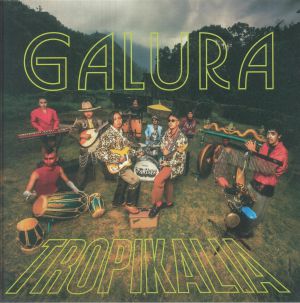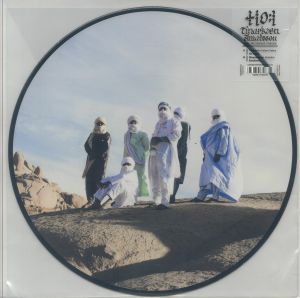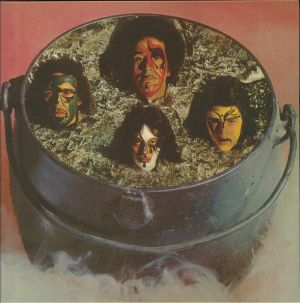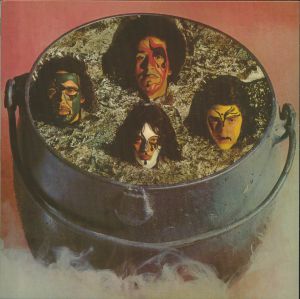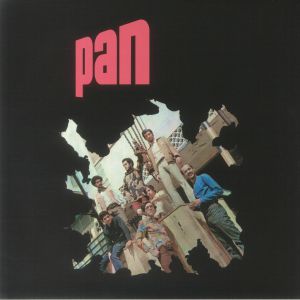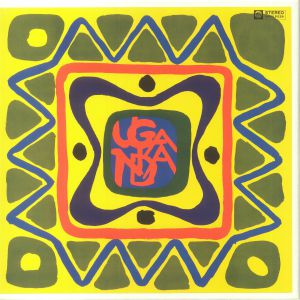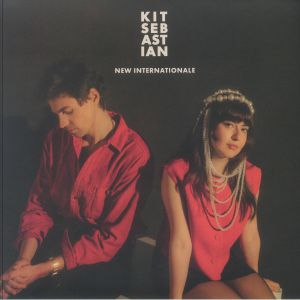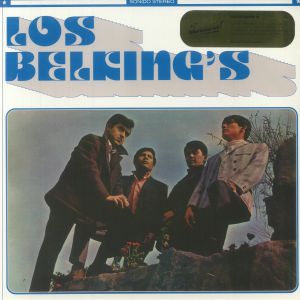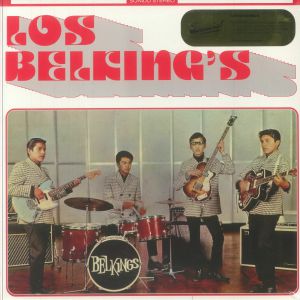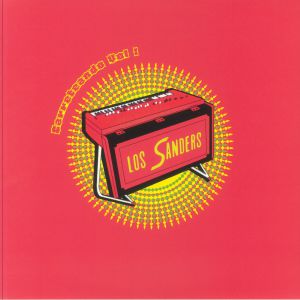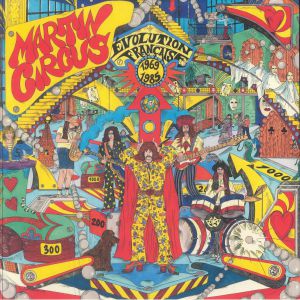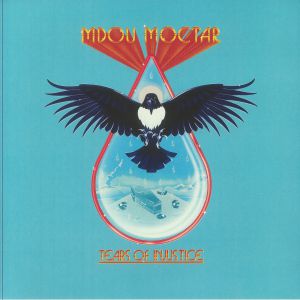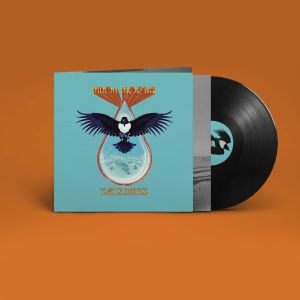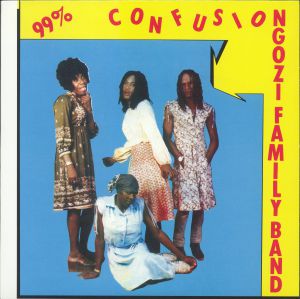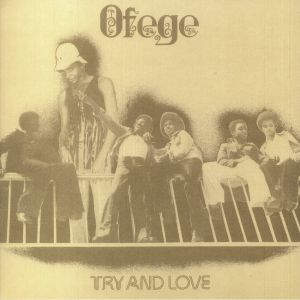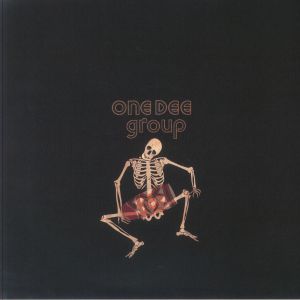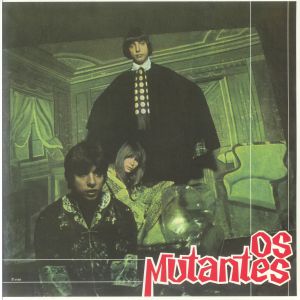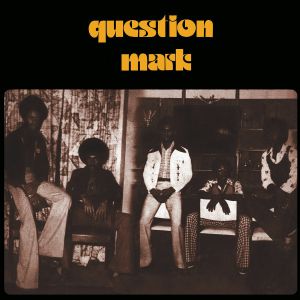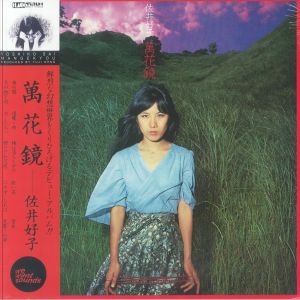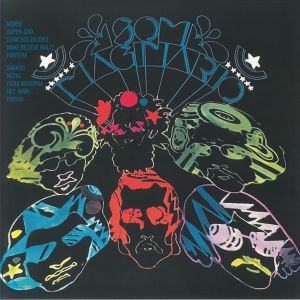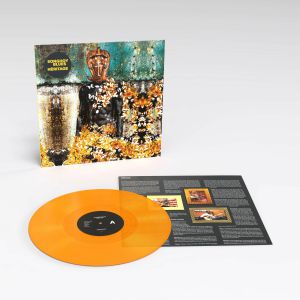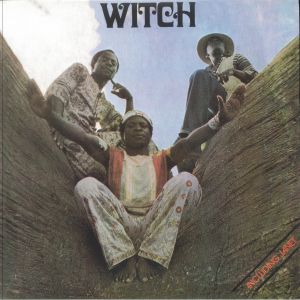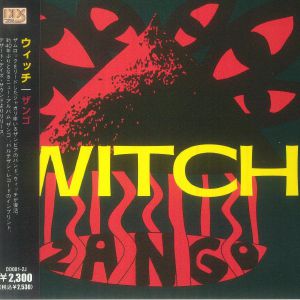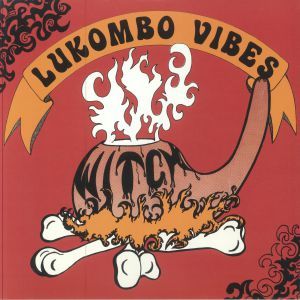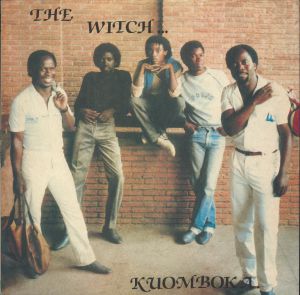Filter
在庫状況
Featured
リリースタイトル
タグ
50
Psychedelic Rock
12
Afro Rock
12
Psychedelic Funk
5
African
5
Latin
4
Japanese
4
Turkish
3
Arabic
3
Brazilian
3
Latin Funk
2
Afro Funk
2
Afrobeat
2
Boogaloo
2
Brazilian Funk
2
European Experimental
2
Indonesian
2
Japanese funk
2
Psychedelic Disco
2
Spanish
1
African Disco
1
Cumbia
1
Ethiopian Jazz
1
European
1
European Rock
1
Flamenco
1
French
1
Highlife
1
Indian
1
Latin Jazz
1
Middle Eastern Rock
Back catalogue: Psych/Garage Rock
Juno's full catalogue of Psych/Garage Rock
シングル
African Dream (blue & pink splattered vinyl 7" + insert limited to 100 copies)
Cat: DSCBOX 1 4 COLOUR. Rel: 08 Oct 24
Review: The Scepters, formed in 1967 in Paraiso by guitarist Celso Spencer, were a popular Panamanian band known for their energetic performances across military bases and high school dances in the Canal Zone. Alongside Lionel Best and Jose James, they covered Top 40 hits and iconic rock bands like Santana and Jimi Hendrix. They released two 45s, including 'Message,' which debuted at Panama's first National Soul Music Festival in 1971 and features next here to a jam from Conjunto Raza, another project led by Agustin Leiro, this one with rotating musicians. They released a single 45 on Onda Nueva in the mid-70s and it blends Zonian and Panamanian talent with aplomb.
… Read morePlayed by: Mukatsuku Records Chart
in stock $24.95
Review: Mahal by Glass Beams melds a diverse array of influences into a unique and enchanting soundscape. The Melbourne-based trio, shrouded in mystery with their mask-wearing anonymity, lets their music speak volumes. Built around founding member Ranjan Silva, their sound draws from the rich heritage of Ravi Shankar, Bollywood, Electric Light Orchestra, and traditional blues.Inspired by repeated viewings of 'The Concert For George', Silva's vision for Glass Beams seems to echo the fusion George Harrison envisioned when introducing classical Indian music to Western pop. The EP opens with 'Horizon,' setting a serene tone before leading into the title track 'Mahal,' an instrumental piece that envelops the listener in its mystical charm. 'Orb' follows with a riveting bass riff, while 'Snake Oil' delves deeper into Indian classical territory, showcasing evocative vocals. The EP concludes with 'Black Sand,' a dramatic and beautiful track featuring interwoven vocals and guitar. As their second EP, following Mirage, Mahal solidifies Glass Beams' distinct place in music, defying categorisation and quietly demanding attention with its almost otherworldly quality.
… Read morePlayed by: Juno Recommends Funk, Juno Recommends International
in stock $21.62
Donde Esta Esa Mujer A La Que Yo Ame (limited hand-numbered 7" + insert + 2 postcards)
Cat: MAD 041. Rel: 05 Oct 23
in stock $26.05
Review: Delve beyond cumbia's usual bounds and explore psychedelic dimensions in modern tropical music courtesy of this, La Banda Chuska's debut single on Names You Can Trust. It offers a window into this evolving sonic landscape, blending as it does rip-roaring guitar riffs with contemporary flair. Picture the B-52s navigating a twisted Pacific-Peruvian time warp, bongos in hand, and this will give you a good idea of what to expect. This vibrant adventure encapsulates La Banda Chuska's colourful fusion of sounds and will have you surfing through a wave of tropical vibes in no time.
… Read more in stock $21.34
Soul Jeronimo (blue & pinksplattered vinyl 7" limited to 100 copies)
Cat: DSCBOX 1 5 COLOUR. Rel: 08 Oct 24
Review: These two rare 1970s Panamanian gems are long-forgotten tracks from The Meditators and Los Misticos that now get pressed up to a very colourful 7", though we also have a plain black version. These Latin psych-funk recordings were created for radio but were stored away for many years and now listening back they offer a glimpse into the vibrant, underground scene of Panama. Beautifully remastered and licensed through Tamayo Records, these rediscovered songs are now available after originally being pressed in extremely limited quantities. These tracks provide a unique chance for listeners to experience Panama's hidden musical treasures while adding some heat to any collection.
… Read more in stock $24.95
in stock $27.99
Amatssou (Deluxe) Bonus Tracks (limited 12" picture disc)
Cat: WEDGEEP 0123. Rel: 29 Feb 24
in stock $25.78
アルバム
Review: Altin Gun has a famously recognisable sound and it is once again laid bare heart for all to enjoy. This new album is a triumphant return for the much-loved sextet from Amsterdam and one that is high on energy levels throughout. Though familiar in that way, this Ask album finds the band ditching some of their synth-drenched former sounds and 80s and 90s pop leanings to return to their 70s Anatolian funk of their roots. It almost sounds like a live album such is the hustle and bustle of the music with the results sounding all the more warm and welcoming.
… Read morePlayed by: Phat Phil Cooper
in stock $24.95
On (limited yellow & orange splattered vinyl LP)
Cat: 764015 9731252. Rel: 18 May 23
Review: We are extremely thankful of the existence of Altin Gun, a Dutch band who focus their efforts on playing Turkish folk/psychedelic rock. Three albums so far have served to establish their sprawling sound. Their latest, Ask, does particularly well to chuck additional funk and disco edges into the mix - but contemporaneously comes On, a reissue of their debut LP released in 2018. In reissuing it, French label Le Vinyl Club document the band's eureka moment and subsequent splash onto the scene that eventually won them a Grammy. Beautiful cuts such as 'Goca Dunya' hear well-polished takes on trad Turkish folk, but with an added energy and verve brought to the fore by not only an electrifying backing band, but a whopping two vocalists, Merve Dasdemir and Erdinc Ecevit Yildiz.
… Read more in stock $24.67
in stock $26.59
in stock $31.88
in stock $33.25
in stock $36.57
in stock $26.59
Uganda: Dawn Of African Rock (LP box set + insert)
Cat: MRBLP 239. Rel: 30 Sep 22
Review: Japanese jazz drummer Akira Ishikawa's blistering 'Uganda (Dawn Of Rock)' makes a piognant claim as to the origins of rock n' roll, blending traditional African drumming workouts with the futuristic tropes belonging to psychedelic rock and fourth world music. Consisting of just four movements ranging from formless to the watery and rhythmic, its recording lies in the basis of just one legendary drummer, but in all its sonics sounds as though an enormous ensemble were behind it. A well-sought J-psych rarity.
… Read more in stock $35.76
Uganda: Dawn Of Rock (reissue) (LP with obi-strip)
Cat: MRBLP 239B. Rel: 14 Feb 24
Review: Uganda: Dawn Of Rock is a great collision of creative talents from Akira Ishikawa and Count Buffaloes who combine to deliver a captivating exploration of rock music's emergence in Uganda. A classic since it was first issued, the album showcases Ishikawa's masterful drumming and Count Buffaloes' dynamic instrumentation. It overflows with infectious rhythms and soulful melodies and each track immerses listeners in the vibrant music scene of Uganda where rock and local African sounds are fused into something new. As such this is a record that offers a perfect glimpse into a pivotal moment in Uganda's musical history.
… Read morePlayed by: Juno Recommends International
in stock $26.33
in stock $27.17
Played by: Juno Recommends International
in stock $20.79
in stock $25.22
in stock $26.33
in stock $31.04
in stock $31.04
in stock $38.79
Pourquoi Tu M'laches Pas?
Review: Known as much for their outlandish costumes as their constant musical evolution, Martin Circus were one of France's most intriguing bands of the 1970s and 80s. Originally formed in 1969 as a psychedelics-inspired progressive rock combo, they later successfully turned their hand to wonderfully camp, over-the-top disco and synth-sporting new wave. Evolution Francaise 1969-1985 does a brilliant job of charting that remarkable musical evolution, dashing between tail end of the 60s prog sounds ('Tout Tremblant De Fievre', 'Facon de Parler'), early Black Sabbath-esque heavy rock ('Annie, Christine ou Partricia'), gritty, Rolling Stones style rhythm and blues ('A Bas Tous Le Privileges'), psychedelic disco-rock ('Les Indiens Du Demier Matin'), Cerrone-ish throb-jobs ('Mon Premier Hold Up', Francois K re-editing 'Disco Circus') and synth-pop ('J'tai Vu Dans Le Canoe?').
… Read more in stock $26.59
Funeral For Justice (limited gatefold blood red vinyl LP)
Cat: OLE 2031LPE. Rel: 02 May 24
Review: Audibly energised by their global tour following the drop of 2021's breakout record 'Afrique Victime', Mdou Moctar and band return with an album of psychedelic assouf centring around themes of global unrest. Moctar's guitar sounds more frazzled and warm than ever, and the ever-cleaner production only serves to highlight the dazzling musicianship of his band. Quickly amassing an impressive and diverse discography of Tuareg rock heaters, Mdou Moctar further cements his reputation as the Nigerien Hendrix.
… Read more in stock $25.78
Review: From their low-key discovery through the Sahel Sounds label via a leap to Third Man and now on to Matador, the rise and rise of Mdou Moctar has been a marvel to behold, albeit not exactly surprising. Led by Mahamadou Souleymane but now framed as a quartet, their Tuareg desert blues sound has a sharper bite than similarly popular acts like Tinariwen which responds very well to a bigger production. Long time fans fear not, the spark of Souleymayne's songwriting and playing is intact, but there's a vibrancy to tracks like 'Imouhar' and 'Funeral For Justice' as they play with dynamics and tension which bring an exciting new dimension to desert blues.
… Read more in stock $24.95
Review: Nigerian singer, songwriter, and guitar legend, Mdou Moctar should need no introduction if you keep an ear to the ground of sub-Saharan African music. Then again, the vague region covers a vast area - land in all four hemispheres and around 15% of the Earth's walkable surface. So you could be forgiven for missing out on an individual artist if, for example, you weren't already looking for them specifically. Or relied on Western culture media for tips on what to hear next. That said, problematically tunnel-visioned as the North Atlantic-hegemony of commentators can be, Moctar has been something of a darling to UK, European and US musos for a while now. On Tears of Injustice he presents a convincing case for their continued adoration. A master of Tuareg, a style of music also known as desert blues, it's an intoxicating sound that easily transports and invokes, even if the predominantly Tamasheq language he sings in remains a mystery - arguably another factor in the powerful mythology surrounding his legacy.
… Read more in stock $24.95
Review: Mdou Moctar's reimagining of his work presents a powerful counterpoint to the blistering original. Recorded in the wake of a political crisis that left the band stranded in the US, this acoustic version strips back the aggression, replacing it with raw grief. The band, recording in Brooklyn's Bunker Studio, brings a new, meditative quality to the music, with the songs remaining heavy but haunting in their unamplified form. The standout 'Imouhar' takes shape through two rapid-fire passes, seamlessly merged into one hypnotic take. Where the original album burned with anger, this version captures the sadness and sorrow of a nation caught in perpetual turmoil.
… Read more in stock $24.95
Review: Paul Ngozi's 99% Confusion represents a powerful chapter in the history of Zamrock, a vibrant music scene that emerged in 1970s Zambia. This late-period hard rock and proto-punk album, featuring drummer Chrissy Zebby Tembo, shows Ngozi's enduring influence in the Zamrock movement. The LP comes with an oversized eight-page booklet filled with rare photographs, a detailed discography, and insightful annotations, providing a deeper understanding of Ngozi's musical journey. Zamrock itself was a unique fusion, blending fuzz-driven psychedelia, raw garage rock, and energetic funk with traditional African rhythms. This distinctive sound, cultivated by bands like Musi O Tunya, Amanaz, and Ngozi Family, stood apart from anything else on the African continent. 99% Confusion, released under license from Paul Nyirongo's estate, is part of Now-Again's ongoing effort to preserve and reissue these vital records. This album continues to showcase Ngozi's pivotal role in shaping the Zamrock legacy.
… Read more in stock $31.32
in stock $23.91
in stock $29.38
in stock $31.04
in stock $32.14
World Psychedelic Classics 1: Everything Is Possible The Best Of Os Mutantes (gatefold yellow vinyl LP)
Cat: LPLBOP 1036. Rel: 30 Nov 23
in stock $36.57
in stock $26.05
Review: The Pambele band's debut album blends Afro-Colombian influences taken from their shared heritage with the vivid sounds of 60s psychedelic rock. It's a work rich in "Caribbean creolisation" with traditional Colombian percussion, joyful, rhythmic vocals and intricate guitar melodies all underpinned with wild organ tones. This powerful cross-fertilisation creates a transatlantic but also distinctly Caribbean sound that draws you into a world of exuberant musical atmosphere. The tunes often get you into a trance-like state while combining raw improvisation and dancey rhythms. It's an authentic escape to a very distant part of the world but one with a universal sense of rhythm that cannot be escaped.
… Read more in stock $27.17
Review: Released in 1977, this Nigerian rock album remains a hidden gem, rediscovered by a new generation thanks to recent reissues. Produced by Odion Iruoje, the album features a group of college students whose music captures the vibrant, post-civil war Nigerian rock scene. With a sound that blends Western rock influences like The Beatles, Buffalo Springfield and early Genesis with a distinct African touch, the album is a joyful yet melancholic exploration of love and harmony. Tracks like 'Love', 'Be Nice to the People' and 'Mary Enne' showcase the band's signature blend of fuzz guitar and heartfelt vocals. The music resonates with the exuberance of other African bands like Blo and Witch, yet it stands out with its heavy fuzz guitar and English vocals, steering clear of political or social activism in favor of pure, emotional expression. This album, recorded in Kenya, captures a moment in history when African rock was evolving, bridging cultures and sounds. It's a timeless piece, equally nostalgic, fresh and perfect entry point into African psychedelia for new listeners and a rewarding revisit for those already familiar with the genre.
… Read more in stock $29.11
Mangekyou (remastered) (LP + booklet with obi-strip)
Cat: WWSLP 96. Rel: 31 Oct 24
Review: The long-awaited international reissue of Yoshiko Sai's 1975 cult classic Mangekyou (Kaleidoscope), produced by renowned composer Yuji Ohno is now here. This sought-after funk-folk album, previously unavailable outside Japan, captures Sai's ethereal voice and poetic songwriting, layered over Ohno's lush, funky arrangements. The music blends groovy, mid-tempo tracks like 'Yoru No Sei' with atmospheric ballads such as 'Tsubaki Wa Ochita Kaya', creating a dreamy yet grounded soundscape. Ohno's masterful production elevates the album, weaving traditional Japanese instruments like the shakuhachi and biwa into the mix, adding cultural depth to the already rich textures. The remastered audio highlights the intricate details of this beautiful fusion of folk and funk, giving Mangekyou a timeless quality. Long considered a treasure in Japan's 1970s music scene, original copies of Mangekyou have become rare and highly valuable, making this reissue a significant release for collectors and new listeners. Accompanied by original artwork and new liner notes by Paul Bowler, this first international edition provides the perfect introduction to Sai's mysterious, revered sound, allowing her music to be discovered and appreciated worldwide.
… Read more in stock $34.92
in stock $33.25
in stock $20.24
23 Twenty Three Years Old (reissue) (clear lime yellow vinyl LP + booklet with obi-strip)
Cat: PCJA 00144. Rel: 03 Aug 24
Review: Chie Sawa was indeed just 23 when she released her sole, soulful full-length city pop come soft rock record: 23 - Twenty-Three Years Old. Now the LP returns to the fore due to the reissuing efforts of one DJ Yoshizawa, whose preoccupation with music in this milieu has also extended to the likes of Junko Hirotan and Kyoko Omiya & Orange as of late. One of many rare and obscure Japanese groove records to have been featured in Yoshizawa's record guidebook Wamono A To Z - which documented many of Japan's least-spotted 'wamono disco' records, i.e. disco and funk LPs that coincided with the nascent 70s concept of wamono, which in art parlance essentially refers to the fusion of Japanese traditions with Western elements: be they ceramic, sartorial or musical. Sawa's debut here is as beguiling as it is sweet, centring on a mellow 60s/70s chic with a swinging pop rock style.
… Read more in stock $44.90
Review: Kit Sebastian's upcoming album, New Internationale, set for release via Brainfeeder, marks a major step forward for the duo of Kit Martin and Merve Erdem. The lead single, 'Metropolis', blends Azerbaijani musical influences with Western funk grooves, using vintage synths and intricate choral textures. The track's samba-driven finale, complete with dual drum kits and processed horns and strings, creates a layered, cinematic soundscape. Lyrically, "Metropolis" explores the immigrant experience, delving into themes of identity, belonging, and artistic compromise in an unfamiliar world. Written while on tour, New Internationale features a rich tapestry of global instrumentsifrom Turkish clarinet to zither and harpsichordiwoven into a seamless mix of Anatolian psych, French pop, and Tropicalia. The album reflects Merve's personal journey navigating her Turkish heritage and Kit's eclectic musical influences, culminating in their most orchestrated work yet. It's a vivid exploration of multicultural identity, using lush, borderless soundscapes that bridge genres and histories, while pushing the boundaries of modern psychedelia and global fusion.
… Read morePlayed by: Juno Recommends International
in stock $27.17
in stock $21.34
Heritage (limited translucent orange vinyl LP)
Cat: TRANS 797X. Rel: 16 Jan 25
Review: With their fourth album, the celebrated rock group from northern Mali, take a bold step forward, evolving their signature "desert blues" style into a more acoustic, introspective sound. Recorded in Bamako with producer Paul Chandler, the album blends the band's gritty, electrifying energy with traditional Malian influences, incorporating instruments and melodies from various ethnic traditions. The result is a vibrant, collaborative work that features contributions from renowned artists like Afel Bocoum, Rokia Kone and Neba Solo. Tracks like 'Issa', which translates to 'river', demonstrate the group's deeper exploration of acoustic textures and storytelling, drawing on the power of nature and migration. The song's early delta blues-inspired guitar riffs complement the band's passionate vocals. The band's ability to honour their cultural roots while embracing new musical horizons really shows well here. The album is both a celebration of their heritage and a bold look towards the future, marking another remarkable chapter in Songhoy Blues' already impressive catalogue.
… Read more in stock $26.59
Witch (Including Janet) (reissue) (limited yellow vinyl LP)
Cat: NA 6107LPST. Rel: 13 May 24
Review: This timely reissue of Zamrock's Afro-prog-psychedelic masterpiece makes its debut on vibrant yellow vinyl. WITCH was a group influenced by James Brown, the Stones, and Deep Purple and they dominated 70s Zamrock stages in their heyday. Their musical journey spanned only five years and culminated in the fifth and final rock album, which predated a split and a new disco venture in Zimbabwe. The record fuses traditional Zambian rhythms and folk melodies with progressive rock and, somewhat echoing Lukombo Vibes, it embodies the Osibas' "afro-rock" style. This release encapsulates WITCH's evolution and influence and gives a vivid glimpse into the era's musical fusion and cultural resonance.
… Read morePlayed by: Juno Recommends International
in stock $27.71
in stock $24.67
in stock $27.71
Review: Zamrock, anyone? Often stylised as W.I.T.C.H, WITCH were one of the leading musical lights of post-colonial Zambia, a band that rose to prominence during the early-1970s, a particularly fertile period in the East African nation during which hopes for the future were incredibly bright. Independence leading to the blossoming of homespun ideas, culture, art and creativity. The story takes a tragic turn as the decade reached its final years, the economy collapsing and policymakers turning increasingly authoritarian. Like many in the 'scene', WITCH would fade, almost into obscurity, although the psychedelic rock-hued legacy they left survived, and then experienced a resurgence from 2012, when they reformed amid renewed interest. Kuomboka represents the group at the height of their fame, an album that still sounds packed with optimism, despite insidious changes in the air when it landed in 1976.
… Read morePlayed by: Juno Recommends Funk
in stock $28.82
in stock $20.51

 USD
USD





